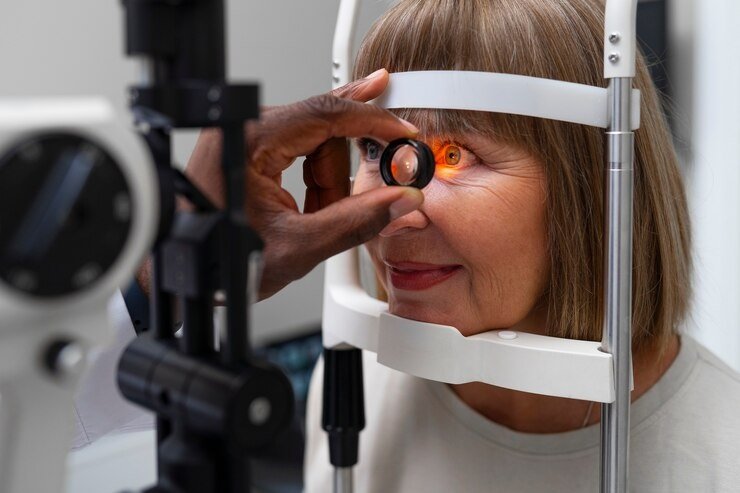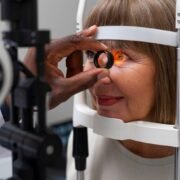How to Get Better Sleep at Night
Ever found yourself tossing and turning at 3 AM, wondering why sleep seems to elude you? You’re not alone. In our fast-paced world, getting quality sleep has become something of a lost art. But here’s the kicker: sleep isn’t just a luxury—it’s a necessity for our overall health and well-being. So, let’s dive into the world of sleep and uncover the secrets to those elusive restful nights.
Key Takeaways:
- Understand your sleep cycle and circadian rhythms
- Create a consistent sleep routine and optimize your bedroom environment
- Address lifestyle factors and try relaxation techniques for better sleep
- Explore natural sleep aids and track your sleep patterns
- Learn about common sleep disorders and when to seek professional help
The Importance of Quality Sleep: More Than Just Beauty Rest
Let’s face it: we’ve all pulled an all-nighter or two, whether cramming for exams or binge-watching our favorite shows. But skimping on sleep isn’t just about feeling groggy the next day—it can have serious consequences for our health.
Think of sleep as your body’s nightly tune-up. It’s when your brain processes information, your cells repair themselves, and your immune system gets a boost. Without enough quality sleep, you’re essentially running on fumes. And trust me, that’s not a good look on anyone.
Poor sleep has been linked to a whole host of issues, from weight gain and decreased productivity to an increased risk of heart disease and depression. On the flip side, getting enough restful sleep can improve your mood, sharpen your mind, and even help you live longer. Now that’s what I call beauty sleep!
Understanding Sleep: It’s Not Just About Closing Your Eyes
Okay, so we know sleep is important. But what exactly happens when we drift off to dreamland? Let’s break it down.
The Sleep Cycle: A Nightly Journey
Your nightly snooze isn’t just one long stretch of unconsciousness. Instead, it’s a series of cycles, each lasting about 90 minutes. During these cycles, you move through different stages of sleep:
- Light Sleep (Stage 1 and 2): This is when you’re just dozing off. Your breathing and heart rate slow down, and your body temperature drops.
- Deep Sleep (Stage 3): This is the restorative stage where your body repairs tissues, builds bone and muscle, and strengthens your immune system.
- REM (Rapid Eye Movement) Sleep: This is when most dreaming occurs. Your brain is active, but your body is paralyzed (thank goodness, or we’d all be acting out our dreams!).
You cycle through these stages multiple times throughout the night. Each stage plays a crucial role in helping you wake up feeling refreshed and ready to tackle the day.
Circadian Rhythms: Your Body’s Internal Clock
Ever notice how you tend to feel sleepy around the same time each night? That’s your circadian rhythm at work. This internal clock regulates your sleep-wake cycle, telling your body when it’s time to sleep and when it’s time to wake up.
Light plays a big role in setting your circadian rhythm. When it gets dark, your body produces melatonin, a hormone that makes you feel sleepy. When it’s light, melatonin production slows down, helping you feel more alert.
Factors That Influence Sleep Quality
Now, here’s where things get interesting. A lot of factors can mess with your sleep quality:
- Stress and anxiety
- Caffeine and alcohol consumption
- Exercise (or lack thereof)
- Diet
- Environmental factors like noise and light
- Medical conditions
Understanding these factors is the first step in improving your sleep. And that’s exactly what we’re going to dive into next.
Establishing a Healthy Sleep Routine: Consistency is Key
Alright, let’s get down to business. If you want to improve your sleep, you’ve got to start with a solid routine. Think of it as training your body and mind to wind down and prepare for sleep.
The Power of Consistency
Your body loves routine. By going to bed and waking up at the same time every day (yes, even on weekends!), you’re reinforcing your natural sleep-wake cycle. It might be tough at first, especially if you’re used to late nights and sleeping in, but stick with it. Your body will thank you.
Creating a Relaxing Bedtime Routine
Now, I’m not talking about brushing your teeth and hopping into bed. A good bedtime routine starts about an hour before you plan to sleep. Here’s what it might look like:
- Dim the lights: This signals to your body that it’s time to wind down.
- Put away electronic devices: The blue light from screens can interfere with melatonin production.
- Take a warm bath or shower: The drop in body temperature when you get out mimics the natural drop that occurs when you’re falling asleep.
- Read a book or listen to calming music: Choose something relaxing, not that page-turner that’ll keep you up all night!
- Practice some gentle stretches or yoga: This can help release physical tension.
The key is to find what works for you and stick with it. Your body will start to associate these activities with sleep, making it easier to drift off when the time comes.
The Nap Trap: Avoiding Long Daytime Naps
Look, I get it. Sometimes that midday slump hits hard, and a nap sounds like heaven. But be careful—long daytime naps can interfere with your nighttime sleep.
If you must nap, keep it short (20-30 minutes) and early in the day. This can help you recharge without disrupting your sleep schedule. But if you’re having trouble sleeping at night, it might be best to skip the nap altogether.
Optimizing Your Sleep Environment: Creating Your Sleep Sanctuary
Your bedroom should be your sleep sanctuary. It’s not just about having a comfy bed (although that’s important too!). Every aspect of your sleep environment can impact the quality of your rest.
The Perfect Mattress and Bedding: More Than Just Thread Count
Finding the right mattress is like finding the perfect partner—it takes time and effort, but it’s worth it in the end. Your mattress should support your body in a neutral position, with your spine aligned from head to toe.
As for bedding, opt for breathable fabrics like cotton or bamboo. And don’t forget about pillows—they should keep your head and neck aligned with your spine.
Light, Noise, and Temperature: The Goldilocks Zone
When it comes to sleep, you want everything to be just right:
- Light: Darkness is key for melatonin production. Use blackout curtains or an eye mask if needed.
- Noise: A quiet environment is best, but if you live in a noisy area, consider using a white noise machine or earplugs.
- Temperature: Most people sleep best in a slightly cool room, around 65°F (18°C).
The Electronic Device Dilemma
We’ve all been there—lying in bed, scrolling through our phones “just for a few minutes.” But those few minutes can turn into hours, and before you know it, you’re watching cat videos at 2 AM.
The blue light emitted by electronic devices can suppress melatonin production, making it harder to fall asleep. Try to avoid screens for at least an hour before bed. If you must use your device, consider using blue light filtering apps or glasses.
Lifestyle Factors Affecting Sleep: It’s Not Just What You Do at Night
Your sleep quality isn’t just determined by what you do in the evening—it’s influenced by your habits throughout the day.
Exercise: Your Sleep’s Best Friend (Most of the Time)
Regular physical activity can do wonders for your sleep. It helps reduce stress, tire you out physically, and regulate your circadian rhythm. But timing is key. Vigorous exercise close to bedtime can actually make it harder to fall asleep. Aim to finish your workout at least 3 hours before bedtime.
Here’s a quick look at how different types of exercise can affect your sleep:
| Exercise Type | Effect on Sleep |
|---|---|
| Cardio | Improves sleep quality and duration |
| Strength Training | Can lead to deeper, more restorative sleep |
| Yoga | Reduces stress and promotes relaxation |
| High-Intensity Workouts | May disrupt sleep if done too close to bedtime |
Diet and Caffeine: You Are What You Eat (and Drink)
Your diet plays a bigger role in your sleep than you might think. Heavy, spicy, or fatty meals close to bedtime can lead to indigestion and discomfort, making it harder to fall asleep.
And let’s talk about caffeine. It’s a stimulant that can stay in your system for up to 8 hours. So that afternoon coffee pick-me-up might be sabotaging your sleep. Try to limit caffeine intake after 2 PM.
Alcohol is another tricky one. While it might make you feel sleepy initially, it can disrupt your sleep later in the night, leading to more frequent awakenings and less restful sleep.
Stress and Anxiety: The Sleep Stealers
Stress and anxiety are like uninvited guests at a slumber party—they show up uninvited and make it impossible to relax. If you find your mind racing when you’re trying to sleep, it’s time to address these issues.
Consider these strategies:
- Practice mindfulness or meditation
- Keep a worry journal to get your thoughts out before bed
- Talk to a therapist or counselor if stress is overwhelming
Remember, managing stress isn’t just good for your sleep—it’s good for your overall health and well-being.
Relaxation Techniques for Better Sleep: Calming Your Mind and Body
Sometimes, even when we’re physically tired, our minds just won’t shut off. That’s where relaxation techniques come in handy. These practices can help calm your mind and prepare your body for sleep.
Deep Breathing Exercises: Just Breathe
It sounds simple, but focused breathing can be incredibly effective in promoting relaxation. One popular technique is the 4-7-8 method:
- Inhale through your nose for 4 seconds
- Hold your breath for 7 seconds
- Exhale slowly through your mouth for 8 seconds
- Repeat 4 times
This technique can help slow your heart rate and induce a state of calm.
Progressive Muscle Relaxation: From Head to Toe
This technique involves tensing and then relaxing different muscle groups in your body. Start with your toes and work your way up to your head. Tense each muscle group for about 5 seconds, then release and relax for 30 seconds before moving on to the next group.
Not only does this help relax your body, but it also serves as a distraction from racing thoughts.
Meditation and Mindfulness: Training Your Mind
Meditation and mindfulness practices can help quiet your mind and reduce stress. You don’t need to be a zen master to benefit—even a few minutes of mindfulness before bed can make a difference.
Try this simple mindfulness exercise:
- Lie comfortably in bed
- Close your eyes and take a few deep breaths
- Focus on the sensation of your breath moving in and out
- When your mind wanders (and it will), gently bring your attention back to your breath
- Continue for 5-10 minutes
With practice, you’ll find it easier to let go of thoughts and worries, allowing your mind to settle into sleep.
Addressing Common Sleep Disorders: When Counting Sheep Isn’t Enough
Sometimes, despite our best efforts, sleep problems persist. This could be a sign of a sleep disorder. Let’s look at some common ones and what you can do about them.
Insomnia: When Sleep Plays Hard to Get
Insomnia is like that friend who’s always late to the party—except in this case, the party is sleep, and it’s not showing up at all. Symptoms include:
- Difficulty falling asleep
- Waking up during the night and having trouble going back to sleep
- Waking up too early in the morning
- Feeling unrefreshed upon waking
Insomnia can be caused by a variety of factors, including stress, anxiety, depression, medications, or other medical conditions. If you’re experiencing insomnia regularly, it’s worth talking to a healthcare provider.
Sleep Apnea: The Midnight Choke
Sleep apnea is a condition where breathing repeatedly stops and starts during sleep. It’s often accompanied by loud snoring. If your partner complains about your snoring or you wake up feeling unrefreshed despite sleeping for a full night, you might want to get checked for sleep apnea.
Treatment options include:
- Lifestyle changes (like weight loss if overweight)
- Using a CPAP (Continuous Positive Airway Pressure) machine
- Dental devices
- Surgery in severe cases
When to Seek Help from Sleep Experts
If you’ve tried improving your sleep habits and still struggle with sleep issues, it might be time to consult a sleep specialist. They can perform sleep studies to diagnose disorders and recommend appropriate treatments.
Don’t hesitate to seek help—good sleep is crucial for your health and quality of life.
Natural and Supplemental Sleep Aids: A Little Help for Your Zzzs
Sometimes, we all need a little extra help getting to sleep. While it’s always best to address the root cause of sleep issues, natural remedies and supplements can provide some relief.
Herbal Remedies and Essential Oils: Nature’s Sleep Aids
Many herbs have been traditionally used to promote sleep:
- Chamomile tea: Known for its calming properties
- Valerian root: May help improve sleep quality
- Lavender: Often used in aromatherapy for relaxation
Essential oils like lavender, chamomile, and bergamot can be used in a diffuser or applied topically (when properly diluted) to promote relaxation.
Melatonin and Other Sleep Supplements
Melatonin is a hormone naturally produced by your body to regulate sleep. It’s also available as a supplement and can be helpful for some people, especially those dealing with jet lag or shift work.
Other supplements that may help with sleep include:
- Magnesium: Can promote relaxation and regulate melatonin
- L-theanine: An amino acid found in tea that may promote relaxation
- Glycine: An amino acid that may improve sleep quality
Always consult with a healthcare provider before starting any new supplement regimen.
Cognitive Behavioral Therapy for Insomnia (CBT-I): Retraining Your Brain
CBT-I is a structured program that helps you identify and replace thoughts and behaviors that cause or worsen sleep problems with habits that promote sound sleep. Unlike sleeping pills, CBT-I helps you overcome the underlying causes of your sleep problems.
Components of CBT-I might include:
- Sleep restriction: Limiting time in bed to increase sleep efficiency
- Stimulus control: Associating the bedroom with sleep
- Relaxation training: Learning techniques to calm your mind and body
- Cognitive restructuring: Changing negative thoughts about sleep
CBT-I can be highly effective and is often recommended as a first-line treatment for chronic insomnia.
Tracking and Monitoring Sleep: Knowledge is Power
In our data-driven world, it’s no surprise that sleep tracking has become popular. Understanding your sleep patterns can help you make informed decisions about your sleep habits.
Sleep Trackers and Apps: Your Personal Sleep Detective
There are numerous devices and apps available for tracking sleep. These might measure:
- Sleep duration
- Sleep stages
- Heart rate and breathing rate
- Movement during sleep
While these devices aren’t as accurate as professional sleep studies, they can provide useful insights into your sleep patterns over time.
Keeping a Sleep Diary: Old School but Effective
Sometimes, the best tool is a simple pen and paper. Keeping a sleep diary can help you identify patterns and factors affecting your sleep. Each day, record:
- What time you went to bed and woke up
- How long it took you to fall asleep
- Any awakenings during the night
- How you felt upon waking
- Daytime activities, including exercise, caffeine intake, and stress levels
After a few weeks, you might start to see patterns emerging that can guide your sleep improvement efforts.
Discussing Sleep Issues with Healthcare Providers
If you’re consistently having trouble sleeping, it’s important to discuss this with your healthcare provider. Bring your sleep diary or tracker data to your appointment—this information can be valuable in diagnosing sleep issues and determining the best course of treatment.
Remember, your doctor is there to help. Don’t be embarrassed to discuss sleep problems—they’re incredibly common and can have a significant impact on your health.
Overcoming Specific Sleep Challenges: Because Life Happens
Life isn’t always predictable, and sometimes our usual sleep routines get thrown for a loop. Let’s look at some common sleep challenges and how to handle them.
Jet Lag: When Your Body Clock is in Another Time Zone
Jet lag occurs when you travel across time zones and your body’s internal clock is out of sync with the local time. To minimize jet lag:
- Adjust your sleep schedule before you travel
- Stay hydrated during your flight
- Try to get some sunlight exposure at your destination
- Consider taking melatonin supplements (consult with your doctor first)











